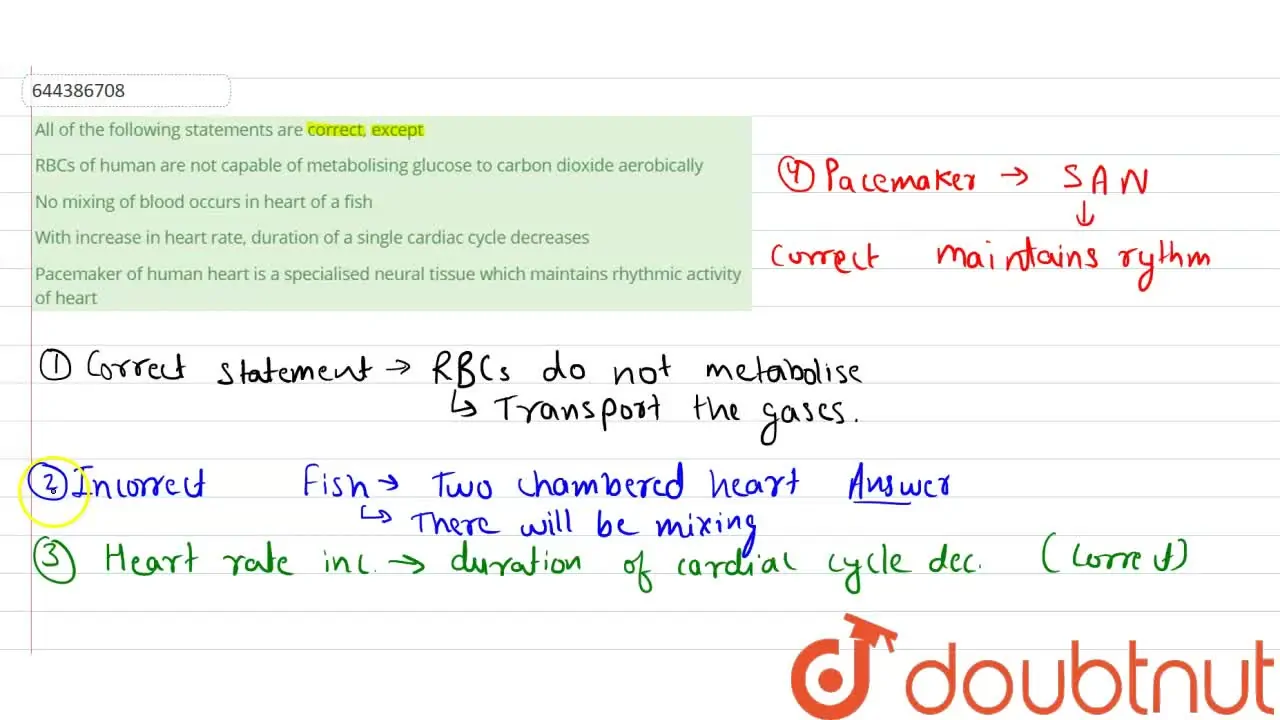All of the following statements are correct, except
RBCs of human are not capable of metabolising glucose to carbon dioxide aerobically
No mixing of blood occurs in heart of a fish
With increase in heart rate, duration of a single cardiac cycle decreases
Pacemaker of human heart is a specialised neural tissue which maintains rhythmic activity of heart
Step by step video, text & image solution for All of the following statements are correct, except by Biology experts to help you in doubts & scoring excellent marks in Class 12 exams.
Related Playlists
Similar Questions
All of the following statement are correct except.
View SolutionAll the following statements are correct, except
View SolutionAll the following statements are correct, except:
View SolutionAll the following statements are correct, except
View SolutionAll of the following statements are correct, axpect
View Solutionall the following statement are correct except
View SolutionAll the following statements are correct except ,
View SolutionAll the following statements are correct except (for real objects)
View SolutionAll of the following statements are correct for cells of parenchyma, except
View SolutionAll of the following statements are correct about plasmids except :
View Solution


